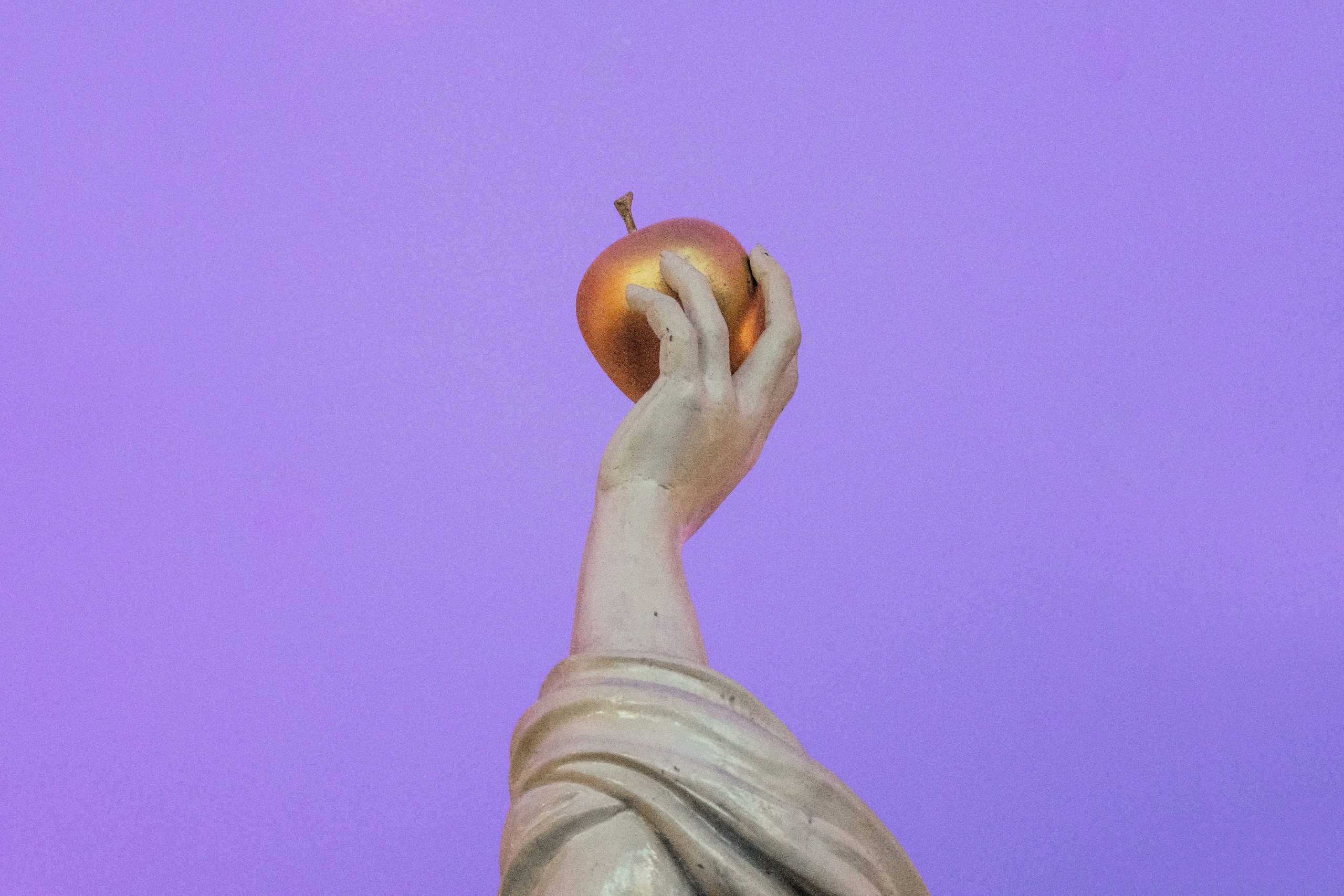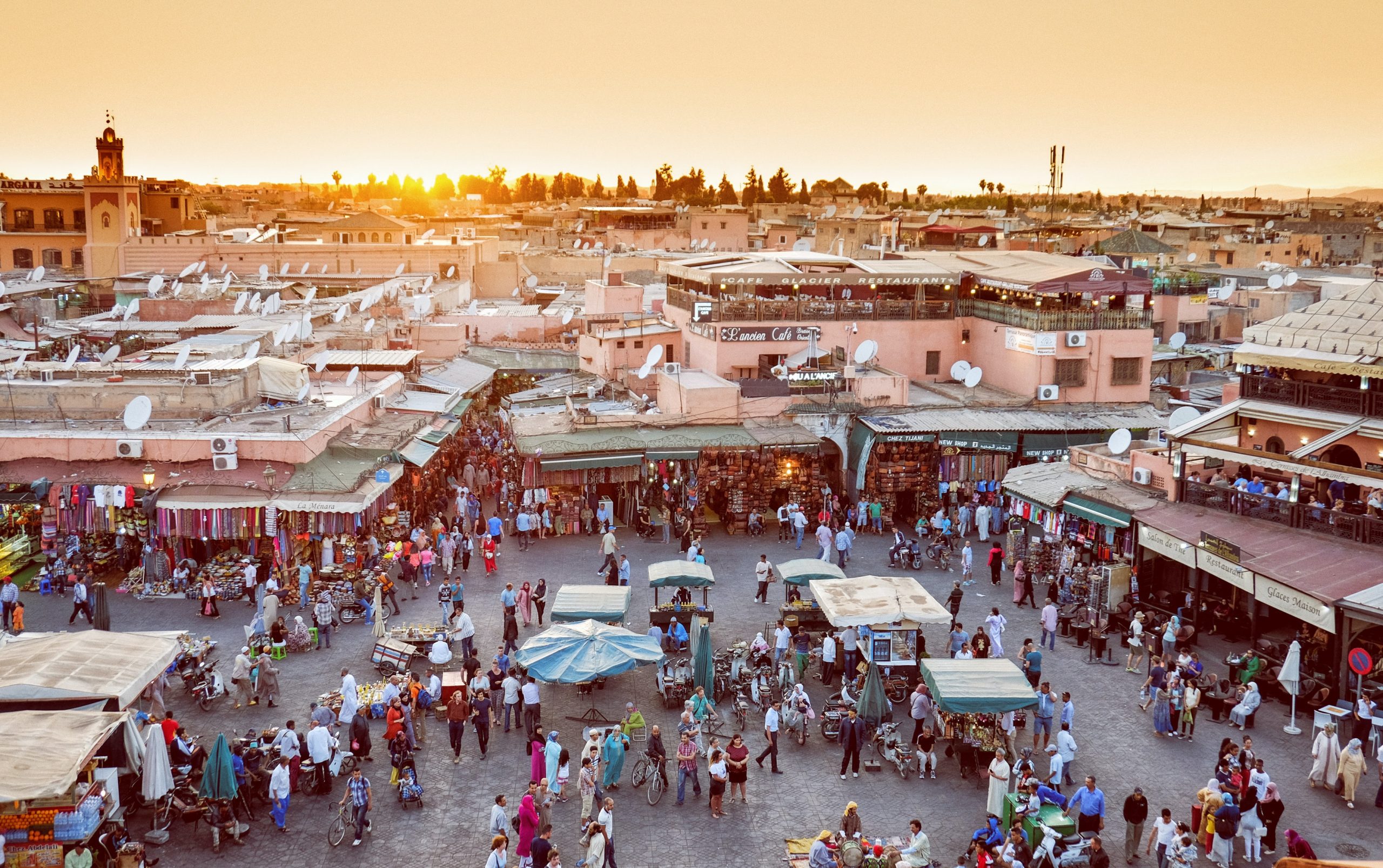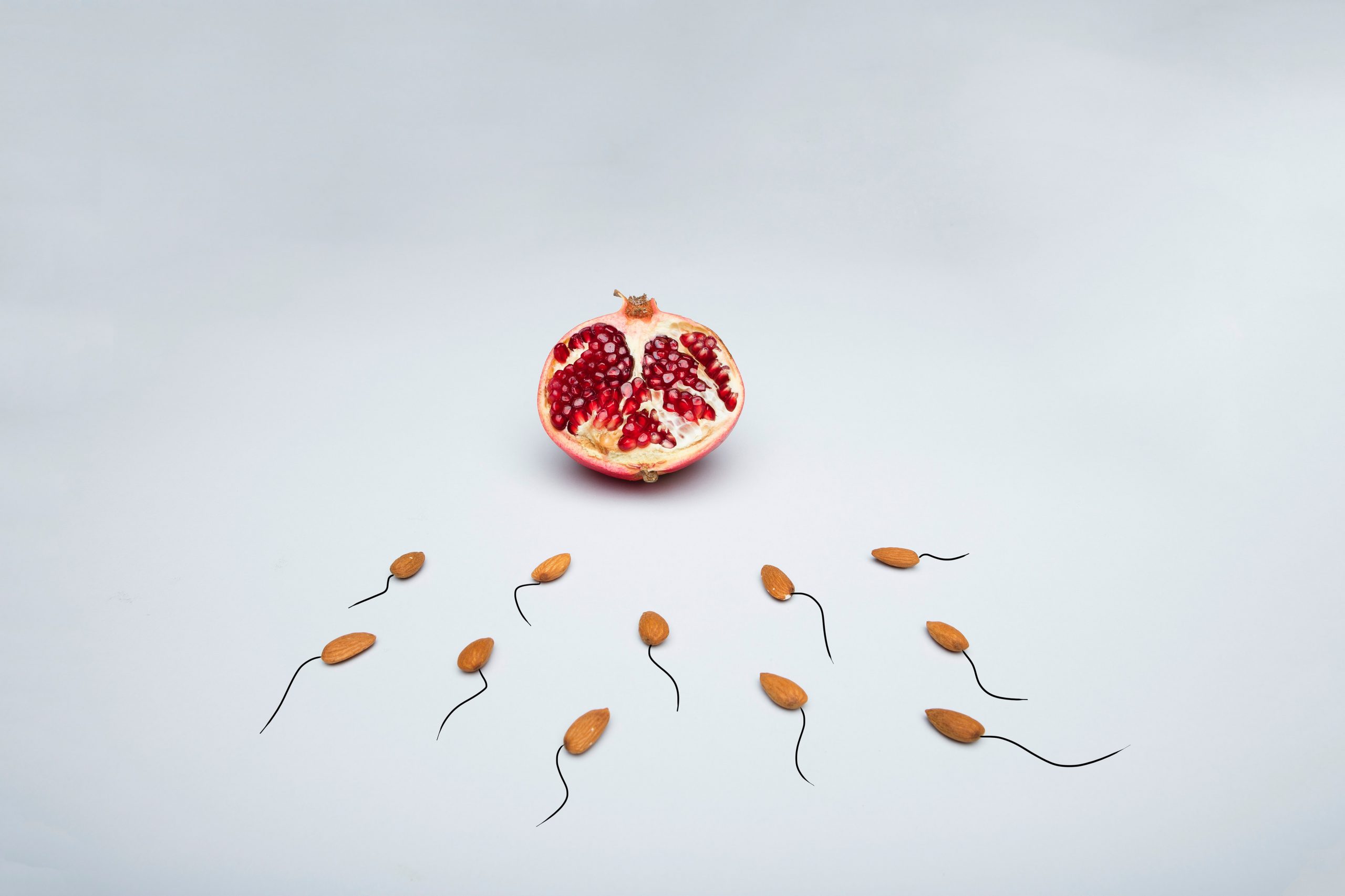A cute steward walks down the cabin, the personification of busyness. He’s wearing a royal blue waistcoat and a blazer striped with flashes of dandelion gold. In tight trousers, his behind looks pert. When he walks back, I try to catch his gaze but he’s trained to avoid mine.
Ayyoub notices this. He exaggeratedly sniffs and returns his hero nose to his book. A shock of sunlight pierces into the cabin, turning his eyes the colour of polished timber. The eyes that tell me, I need you; told me this last night.
The double-page spread in Attitude is dedicated to weekend trips to Morocco and its ‘Red City’. With the Medina, the famous Jemaa el-Fna square, with its night market, and time together in a foreign country – Ayyoub’s country – I’ve worked hard for this. I try to sleep but the pilot announces there’s turbulence ahead. The words in my magazine combine and collide: Gays Marrakech taste swindle thyme.
I’ve been to Morocco once before. It was five years ago, on the coast. Essaouira was what my uni mates, Liam and Clare, had been pining for. Jimi Hendrix’s hangouts nestled between the Atlantic shoreline and the sky-scraping sand dunes. They bought Bob Marley t-shirts from rundown kiosks and sought out vegan cafes where they could drink and smoke. In the low season, it was windswept. Reflecting on it, I was lonely. Mum had left; men rarely looked at me.
Why isn’t Ayyoub looking at me?
On the final night with Liam and Claire, I remember wanting to absorb the last of the January sunshine, leave the lovebirds be. Finding the only guidebook on Marrakech stored by the riad’s reception, a jumble of pages from the early 1970s that on a flick through, smelt like corked wine, I asked for directions to Jemaa El-Fna. I wanted to take photographs of men lumbering with metal trolleys, ready for a night’s work.
Men dressed in djebella contradicted one another when I ended up lost in the Medina. I felt uneasy as a young boy of about nine or ten hovered feet in front of me, regularly turning his head to see whether I was still there. When I turned a corner, he waited to see which direction I was going in and would walk with me to see whether I was gullible enough to pay him to be my guide. The smell was of incense and ginger tea. The boy motioned me past the door of an inconspicuous mosque, dozens of men’s tatty pairs of shoes and ragbag babouche slippers lined up neatly outside.
‘Thanks, but I can manage on my own. Chokran,’ I remember saying to the boy, turning around to see who else was watching and whether I was being set up.
My mind’s getting tired now. Why does Ayyoub look upset?
Thinking back, the Marrakchi boy said, ‘Uncle watch you follow. You pay us.’ Something sinister like that, determined it seemed to blackmail me. I turned away and bought bars of soap I didn’t need.
‘We’re only joking, come on. Laugh.’ The boy tugged at my coat. His ‘uncle’, dubiously young, grinned a tea-stained smile. I asked a policeman for help and headed back to the riad. That had been Marrakech for me.
My visual focus shifts when a stewardess touches my sleeve. ‘Sir, I’m sorry,’ she says, ‘but the pilot has signaled we have some bad weather ahead and asked everyone to fasten their belts.’ I need the loo, and cast Ayyoub a confused glance across the aisle. This time he reciprocates. My heart slows seeing his eyes performing a play, dancing crystals of light, spotlights on a stage.
I take care to avoid my shirt sleeve getting caught under the Japanese woman next to me’s puffer jacket, which stirs even as she sleeps. Ayyoub and I didn’t sleep well last night, so that makes three of us. My magazine on my lap, I’m staring at words I don’t intend to read.
The plane leans east towards the Atlas Mountains, which are sprinkled white. Below I see settlements in the foothills, rusty on the underside like our copper dirham coins. I made a big fuss promising Ayyoub I’d get our currency from the exchange off the Edgware Road, the one that accepts five-hundred-euro notes. He seemed calmed by our afternoon there, the two of us side-by-side, hot toweled afterwards waiting for our shaves in a Turkish barber shop.
‘Madam?’ The stewardess bends to speak to the Japanese woman. ‘You must stow your table tray and sit in an upright position. Can I please check, sorry Madam, you need to,’ the stewardess gulps, ‘sit up straight.’ The plane jolts further to the right.
I jig my legs and sip my Coke Zero.
‘Stewards, please get ready for landing.’ The cute one with waxed brown hair purses his lips as first he catches Ayyoub, and next to the window, sitting across the aisle from Ayyoub, me.
I turn my body to look at the earth from 15,000 feet. Freeing myself from the Japanese woman’s tangle of hair, there are foreign colours now, pinks and greys, ochre and the faintest of yellows, as if applied to the land in brushstrokes. Two mud mounds, one much larger than the other, rise out of the earth as a tortoise might lift its head out of its shell.
‘Oh wow, so, so sorry, I’m sorry, I didn’t realise how tired I was,’ the Japanese woman says with an Americanised lilt.
‘I didn’t want to wake you up; I hope I didn’t?’ I ask.
‘No, no, not at all. I was out of it. I’m between jobs, so, yep, I’m exhausted,’ she says pointing to her face and drawing me a smile in the air with her fingers. She tells me she’s a photographer for fashion houses. She zips up her travel pillow in one of her bags and her frown lines crease when she sees the headline in my magazine, Rock the Casbah this Spring in Marvelous Marrakech.
‘Do you come to Marrakech often?’ I ask.
‘Too often. I love it, and hate it, like all in one. Whatever you think it’s going to be, think again. So, tell me, do you haggle?’
‘I can’t be bothered. I always want to know the price, not spend time sussing out what something’s true value is.’ I roll my eyes.
‘You’ll need to! Haggle, I mean. I’m Aki.’
‘Stephen.’
‘Hey, Steve.’
Ayyoub mouths something at me from across the aisle, but I’m distracted. The pilot jockeys the misbehaving plane into land, and we’re told we can switch on our mobiles. As she adjusts her jacket, Aki is a shower of loose limbs, obscuring Ayyoub’s moving lips. He WhatsApps. ‘Go ahead when we get to the terminal. I know you need the loo. I’ll follow.’
‘Let’s just go together,’ I type back.
‘So, who’s the hot guy?’ Aki giggles.
‘Ah, just a friend, you know.’ I lower my voice, turn around to see if anyone Moroccan is listening, and check Ayyoub hasn’t heard me.
‘Well, some friend. I may need to photograph him. I have my own private work too, here’s my number.’ Aki slips me her business card.
Another WhatsApp. ‘See you the other side of security,’ Ayyoub begins typing. ‘That way you can get in the queue quicker than me, as your queue will be longer. British people get asked questions sometimes.’
The stewardess plays a ditty celebrating the fact the flight has arrived on time. ‘We’re first in Europe for punctuality.’
I watch Ayyoub. Tiredness makes me horny. First, I look at his finely cropped hair and smooth forehead, next at his curved neck. I imagine my lips on the whisper of his black moustache. His nipples would come next. They’re earthy and taste like moussaka. He stretches for our overnight Herschel bag from the locker above, only the one. I don’t know why, but I gently poke him, which makes him smile. His eyes betray him, though, as I also receive something bordering reproach. He’s wearing my favourite green and red lumberjack shirt of his. I can’t wait to take it and his jeans off to expose his unblemished skin, his goosebumps the wiring beneath my hands.
I’m on the first bus to the terminal but I feel a dull ache in my upper chest and groin. There’s a mix of first-time tourists with their wide-brimmed hats and baggy shorts. One English woman is even wearing a Fez, presumably for a hen do. An Arab woman looks at her and pulls her baby’s pram closer towards her chest.
The queue in the security hall, clinical with strip lighting, is long. The bathroom is a reprieve and smells of orange blossom. At the urinals, I drill myself. ‘I’m staying at Riad Zenia close to Mellah. I’m a writer. I’m only staying for the weekend. I’ve come alone.’ I need to forget all references to ‘we’, and what the fuck am I doing, saying I’m a writer? I’m a manager, that’s good enough for the guy who will ask me. How about this, the line I teased Ayyoub with, pretending I’d say it for a twenty-quid dare: ‘I’m staying at Riad Zenia. I’ve never fucked a Moroccan twink. I don’t know about Article 489. I didn’t know same-sex acts were punishable because they are lewd. They can land people in jail? I’m so sorry to hear that, I wasn’t aware.’
As a toilet flushes, I think back to the trickle I heard after Ayyoub rose from our bed last night and spent ages in the bathroom.
‘Born in Stratford-upon-Avon?’ a beige-uniformed official asks, flicking through the many stamps on my passport. ‘The city of Shakespeare. What stories!’ he exclaims with what echoes in the low-ceilinged hall as a desire to sound important.
Out I go through what feels like a needless scanner to check people’s suitcases – surely, our luggage was already checked at Stansted? – into the arrivals hall. Past the one open store, which is selling sim cards, dozens of people embrace. Women in overalls mop the shiny floor. I could buy a local sim card but I’d rather organize everything with Ayyoub.
‘You can’t stay here, carry on to the exit,’ says a man who scurries to my side. He has the pinched face of a man whose cheeks, eyes and lips look like they’ve been clamped together with a stapler. Another angry-looking official approaches.
‘Excuse me, all passengers must proceed to the exit.’
‘I’m just waiting for a friend.’
‘You can wait for them outside the terminal.’
‘Je voudrais attendre. We travelled together; I’d like to wait.’
The official consults with the man with the pinched face and they look at me over their shoulders as they walk to a glass door in the wall. The Arab woman with the pram is with an older woman and the two are laughing. Aki passes by with her three large bags and gives me a wave. ‘Call me,’ she shouts.
Ayyoub’s not outside. Dozens of men stand close by, hugging, bellicose and uproarious. Many are taxi drivers waiting to escort newly arrived tourists to this or that riad. One catches my eye, a guy in a beaten black leather jacket, holding a sign, Riad Bernadette written in blotchy red script. Ayyoub advised me that a friend from our accommodation would be waiting for us, but I have no idea who he is or what he looks like. I wonder if Ayyoub entered the same queue as me, the one for non-Moroccans. He said something about choosing to travel with his French passport.
Again, I think about last night; me drinking water in the kitchen to rid my mouth of saliva, and Ayyoub behind the locked door, retching one second, and later, clearing his throat.
‘For fuck’s sake. Hurry up.’ My phone’s struggling to recognise the new network, bloody hell, it takes so long. Another plane comes into land from the UK, so does a Ryanair. More tourists. More people join the queue. No messages. When I visited five years ago, scrolling through Grindr cost me seventy pounds, so I switch the phone off again. In the distance, I hear the wind of traffic circling the airport, and crickets begin to chirp in the long grass.
When we met last summer, I was struck how placid Ayyoub was. How unfathomably calm. He told me his older brother had died only weeks before. After months of living separate lives, my ex, Marouane had left the house by then, well, just. Ayyoub’s different. Self-contained. He’s a refuge for me, and always in bed by midnight.
It was my idea to come here. He favoured somewhere ‘easier’, but I didn’t probe when he refused to answer a simple question about his family. I wanted to give Marrakech another ‘go’. Tomorrow we’re having breakfast at a cooperative run by women, which only serves vegetarian food. Then, we’ll visit the Yves Saint Laurent Museum and the Majorelle Garden. I have picked out my favourite deep blue and yellow striped bowling shirt. I hope Ayyoub wears his cream white shirt and faded blue jeans. I’m doubting our schedule.
I’ll head to Departures, the only way to enter the airport.
‘Are you on the flight to Lisbon? You have to hurry, check-in has closed.’ A young woman in a flowing gown hurries me along.
The arrivals board shows five flights have landed since ours, from Pisa, Frankfurt, Casablanca, Amsterdam and Seville, passengers all filing past. Tour groups. Entire families. Septuagenarians enjoying retirement. I no longer recognise any of the passengers from our plane. All of them have presumably got their taxi rides and have settled down somewhere for a thé à la menthe. That’s what I want to be doing, or running a bath, or stripping off, stroking Ayyoub’s mop of wet hair.
It is now tar-black outside. ‘Text me. Call me. Are you okay? It’s been an hour.’ The tightness in my chest swells and the doubts Ayyoub seemed to carry about our trip fill my lungs. Ayyoub’s Herschel bag contains the mobile phone chargers. Soon I’ll run out of battery.
At Lost Property, the man only speaks Arabic. I try to make myself heard but I’m competing with the high-pitched whine of a vacuum cleaner that a woman is crashing into chairs. I find a shred of scrap paper the lost property agent has on his desk, but he seems bewildered.
‘Please, if someone comes for me, say I have gone to the hotel. Here it is, Riad Zenia. Call me there,’ I plead, but the agent’s eyes are closing.
The oddest Ayyoub has ever acted was when we went to the Cotswolds for his birthday weekend in October. He went for a walk, which was meant to be brisk. He returned two hours later, drenched in his thin mac. He said he’d found a new path. As soon as he entered our hotel bedroom, I pretended I was reading a book by my old Oxford tutor, but I was scrolling hook-up apps, and I am sure he knew. Either way, he was happy I ran him a bath afterwards and happier when I joined him.
‘Mr Rose?’
I turn around and a middle-aged man with a moustache that screams for a trim, gestures that I need to follow him through the same glass door in the wall that I saw the two angry officials walk through earlier. He’s wearing a uniformed blue shirt and is chewing gum.
‘Are you here in Marrakech on business?’
‘Sorry?’
‘You are Mr Rose? Your passport, please.’
‘Yes, but I—’
‘I will need to ask you some questions. Here.’ He moves a seat towards me but it’s the kind you’d find in a classroom, far too small to comfortably sit on.
I’m in a partitioned area with cubicles, perhaps as many as half a dozen. Silhouettes form on the other side of the perspex wall. I hear muffled voices, but I can’t hear or see Ayyoub.
‘We found a bag deposited by the toilets. It has your name tag and books inside belonging to you. There’s a photo, and some documents. Are these yours?’ He’s pointing to the Andrew Christian jockstraps, but I don’t recognise the scratched Adidas bag. The folds of the security official’s jowly cheeks expand and contract like an accordion. Jocks? Not the smartest item to pack, perhaps, but they were my gift for Ayyoub. I don’t get what this is, why I’m being questioned. Why would this bag have our names on it? Why was it in the toilets?
‘We also found another item, which is not permitted in Morocco, and which carries a fine. I must take a few moments to photocopy your passport. Sit there please and don’t move.’
Ayyoub put a few of his things into our overnight bag, but what? I hear echoes of cabinet drawers and distant doors closing but most of the cubicles have their curtains drawn back. It’s nine at night.
‘The prohibited item. It is sealed in this bag. Yours, no?’
It’s a paperback, but I’ve never seen the book before. It’s not something I’d read. It must be Ayyoub’s, but it’s bizarre. It doesn’t look serious enough to be one of his. There are lithe, tanned male bodies on the front cover. One of the men is obscured by a large shadow over his abdomen.
‘You can’t bring in materials like this. Articles like this. No. Not permitted.’
‘I understand.’ I nod. The choking noise of a central heating fan extracts what air remains in the room.
‘You alone, or family too?’ He seems undecided whether to be strict.
‘No, I came with a friend.’
‘A taxi will wait for you outside to take you to your destination.’
‘But the book, it’s—’
‘About San Francisco. Aids. No. Not permitted. Nothing like this.’
‘But sorry, I have to know where my friend is, I have to meet him.’
‘There will be time for all that later, first we’ll take your photo, stand here. Fingerprints. Who told you you can come to Morocco with a book like this, was it a Moroccan? Are you planning to sell it?’ I tell him it was for my own leisure, but I agree, it must be confiscated, I am here for tourism and tourism alone. I’m fined one-thousand, one-hundred dirhams.
Rain patters the windows. It’s not obvious to me this is the route, I don’t remember the Old City looking so bare. I mentally leaf through the confiscated book in the back of the cab. I had never heard of the author before and I still don’t have news from Ayyoub. Searching Google, I learn the book is about a detective of some sort. It doesn’t even get listed in Amazon’s section of erotica.
The entrance to Riad Zenia is inauspicious. A beggar is sitting cross-legged with a hand-woven pouch to collect coins, but as soon as I enter and hear the trickle of the fountain in the forecourt, I exhale.
‘Yes?’ asks a woman from a cavernous study.
‘Hi, I have a booking, for two in fact, Stephen Rose.’
The woman approaches the reception desk. ‘Rose? Let me look, we’re not expecting anyone.’ She licks the tip of her forefinger and lowers her spectacles down her nose. Leafing her way through her file, she looks up at me and with a pointed expression, lifts her spectacles to study me closely. ‘You have a friend?’
‘Yes, maybe that’s the booking, sorry, a friend, do you mean?’ I was expecting a friend of Ayyoub’s to greet me; someone expecting us, and prepared for our arrival with a tray of tea.
‘You’re staying with a friend, a Moroccan man?’ the woman asks, a newspaper folded underneath her armpit.
‘Yes, my friend, Mr Berrada.’ It’s a trial pretending we’re not partners.
‘He’s upstairs. Here, you’re in room two on the first floor,’ she says, handing me a rusty key with three prongs and a Hand of Fatima dangling from it on a silk thread. Ayyoub must have come here wondering all this time where I was.
As I climb the staircase, the floorboards creaking beneath my feet, I notice old maps of Essaouira on the riad’s brick walls. I wish Liam and Clare were here, stoned and straightforward. I turn the key. Inside Ayyoub’s boots and his faded blue jeans are strewn across the scratched purple and brown rug. I can hear the shower running from the small ensuite and the door has been left ajar. I look for my reflection, but a mirror above a desk is steaming.
‘Thank God,’ I say, walking into the bathroom.
Ayyoub’s scrubbing himself, tearing at his skin with his fingernails and a pumice stone.
‘Hey, come on, what’s wrong?’ I ask.
‘I need a few minutes, I’ll come out in a bit,’ Ayyoub says, barely turning his head from behind the shower glass to look at me.
I look inside our Herschel bag and start to unpack. It’s peculiar. I don’t remember us packing any of this stuff. There’s a traditional djebella and a copy of the Koran. I start to shake. He enters and sits alongside me on the bed, his head cradled in his hands. The meringue-white towel clings to his torso and contrasts with his oak tree skin.
‘They searched me,’ he says with a child’s voice.
‘Did they take stuff?’
‘Yes, my phone, all my clothes and yours, for what they say is a DNA trace. They’re lying.’
‘What now?’ I ask. ‘This is fucking crazy.’
‘Not as crazy as coming here. I told you,’ Ayyoub says.
‘I don’t get it. What are we supposed to have done wrong?’
‘They saw the video, I should have deleted it. You’re such an idiot.’
‘On your phone? But that was in London, what, they can’t—?’
‘You objectify stuff. Idealise. Things. Morocco. Me. It’s not always what you want that makes something real, you know.’
‘But come on, we’re hardly in Dubai. Or Riyadh. This is Marrakech.’
‘That’s not exactly my point. My family can’t be connected with this stuff.’
‘Is it the video that pissed you off; I haven’t sent it to anyone?’ I ask, sensing the real issue.
‘Yes. But more to the point, one of the guys at security was my parents’ neighbour. He recognised me.’
‘And?’ I ask.
‘Well, the last time anyone saw me here, I can’t right, it’s complicated. But we shouldn’t have come.’
‘But last time you were here was your brother’s funeral, what’s wrong with that?’
‘I can’t, I just want to sleep.’
‘They made all this stuff up about a book in San Francisco, Aids, it was so fucking weird. It turned out it was just a crime novel, airport shit. I’m freaked out right now,’ I add.
‘They’ll do anything to freak us out.’ Ayyoub looks at me. ‘This isn’t Tangier, it’s not the 1960s. You’re not Paul Bowles. We don’t get to breeze in with videos on both our phones of you fucking me. And you know what, Steve, you’re not a fucking porn star, either.’ He’s sweating. He twists his body when I go to hug him and all I’m left with is his curling dead skin. Minutes later, he anticipates my hug in the s-shaped space between our two foetal positioned bodies. His nose whistles a tune as he gently breathes into sleep.
The Muezzin’s call to prayer wakes me up. I turn and stretch to stroke Ayyoub but it’s his two pillows I touch. I scratch at a bedtime mosquito bite on my ankle and see the lace curtains caressing the wooden window shutters. The bathroom’s empty. Outside the wrought iron window grill, the sky is stale and sits heavily on the Medina below. On my mobile phone, half-a-dozen WhatsApp messages from a Moroccan number I don’t recognise, and scrolling, it’s the video of the two of us, me filming, him and his widened eyes, looking up at me.
The messages are written in Arabic, stuff I barely understand when I copy and paste it into English on Deep L Translate. There’s messages from Ayyoub’s sister, telling me there’s a flight at 15.20, ‘you should go back to Britain’.
One message is from Ayyoub’s father, telling me if I don’t go, they’ll send someone to the riad to arrest me; the family has ‘friends in high places’ and he’s not sure I know this, but what I’ve done could see me charged. They see this as assault on their heterosexual son. Buttoning my shirt as I walk out to the mezzanine courtyard, I look to see if Ayyoub’s taking his breakfast early. The receptionist finds me on the landing outside our bedroom. What’s that stern look for? My jeans aren’t zipped.
I sit on one of the divans placed on the landing and one of the riad’s cleaners sweeps the dust around my feet. Greenfinches sing. I realise I missed a WhatsApp message from Ayyoub amid the flurry of texts from his sister and father. It arrived at twenty-past seven.
‘What you did the other night was weird, it didn’t make me feel good, the way you thought I was okay and you filmed, well, you know what you did. I’m not saying it was bad, but, just think, slow down. I better go and see my family. I’m going to be there for some time.’
Out of the darkened riad hallway, I buy a charger from a stall in the Medina. Later, I buy myself some deodorant. It was this time of year I visited five years ago, but everything seems dustier now, and I don’t know what to do. I could still go to the Majorelle Garden but as I walk, dazed, past the El Badii Palace, for lack of any other plan, I purchase a ticket. The guide says in stunted English that the Sultan wanted the Palace to ‘charm the eyes’, that the Saadian dynasty covered the capitals of its columns with ‘molten gold and fine gold leaves’. It’s all about the impressions we leave, I think to myself, and I stumble on an uneven stone as I receive another message.
‘Make sure you’re on the plane. Otherwise, stay here, and we’ll press charges. My father is not playing. My brother’s engaged to a woman and you’re never to speak to him again.’
It takes me back to school, to Dad, who I was never in trouble with, but whose stilted conversations made it clear he didn’t approve; in the 1980s. I’m in Warwickshire, and remember Dad’s frowns across our kitchen table, Mum sighing. I scroll through my phone, shiver, and message Aki. We arrange to meet at a rooftop cafe.
‘He didn’t seem that into you, if I’m being honest,’ Aki says, handing me her share of cash to pay the bill.
‘But we’ve been together seven months, it was a big misunderstanding, that’s all. I know he’s in trouble.’
‘Look, I get it, I do, but sorry, I hate to ask.’ Aki pulls her chair closer to me. ‘Do you think you’ve read the situation, like, how can I say this? Correctly?’
‘Possibly not, there’s the bag they found in the toilets, the weird book; I can’t work any of it out.’
‘And?’ Aki motions me to hand over the cash to the waiter.
‘Ayyoub smiled when he fell asleep last night. You can’t fake a genuine smile.’
A cab picks me up outside the riad at half-past one and with my free guide to El Badii Palace, and the best part of four-hundred euros in currency, I head back to the airport. I pass through Departures. Blotchy-eyed, I buy a coffee and try to avoid attention. As we take off, from my window I see a golf course with tear-shaped ponds and a lagoon surrounded by condominiums. There’s a huge neon sign advertising shaving products and the crisscross of traffic heading down Mohammed V and the city’s main thoroughfares. I put my hands on my lap like an obedient schoolboy but a few moments later I’m a fidget, so I open Ayyoub’s message. He was happy enough the night before our flight. Does he mean to say he wasn’t happy? It was stuff we’ve done before. There’s no way he could have a fiancé. When I’m back in London, I’ll find his friend’s details, the one who wasn’t at the riad.
‘You know what you did.’ What a bloody weird thing to say.
With its wing dipping, the plane tilts its hat towards the pink clouds. Ayyoub’s message is obscured by shadows.
‘Just think, slow down.’
The mid-afternoon sunshine licks a cute Moroccan’s face, maybe a guy of nineteen. He’s sitting across the aisle, but I force myself not to stare. That night at home, Ayyoub’s head was on my chest, and he slept right away, and last night too. It’s our pattern, me holding him, me as the Dad. He needs me, right?
From right-to-left my eyes scan Ayyoub’s text.
‘I’m not saying it was bad’.
I’m going to spend the flight re-reading.
Andrew Kauffmann is a writer and coach whose prose has been published by Untitled Writing, Polari Press, Streetcake Magazine, Clavmag and Queerlings. He is a genealogy geek and is currently working on a number of non-fiction projects. A 2020 winner of The Literary Consultancy’s LGBT+ Free Reads competition, he is also a winner of the 2021 Scribe UK and Spread the Word competition for first chapters of creative non-fiction. He blogs on storytelling and wellbeing at www.andrewkaufman.co.uk









